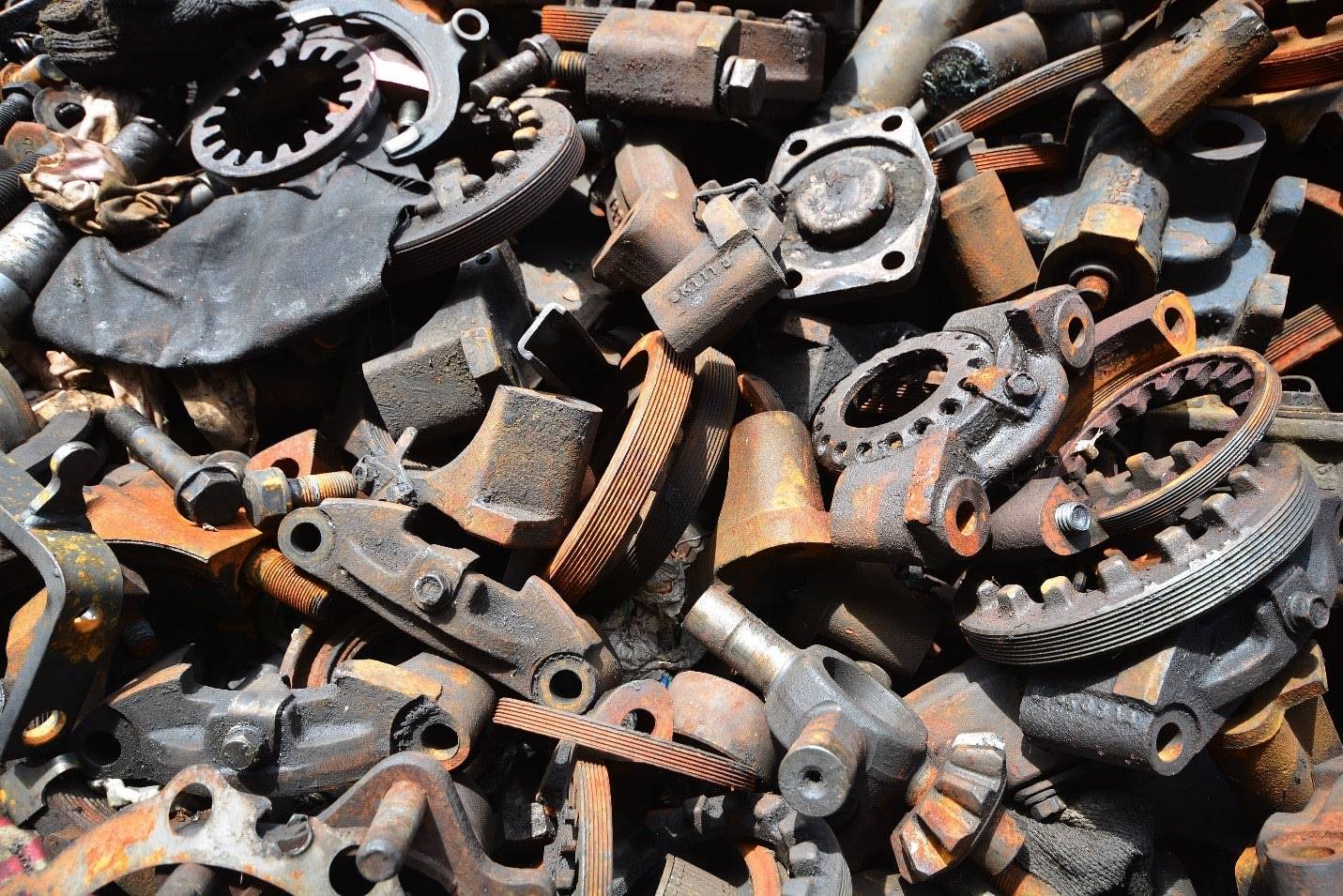
In the world of recycling and sustainability, scrap metal plays a crucial role. From old cars to discarded appliances, scrap metal is collected, processed, and reused to reduce the strain on natural resources and combat environmental pollution. If you’re interested in learning more about the fascinating world of scrap metal, you’ve come to the right place! In this article, we will explore 10 intriguing facts about scrap metal that will leave you amazed and inspired. From the value of different types of metals to the environmental benefits of recycling, get ready to delve into the world of scrap metal and discover its significance in our modern lives. So, let’s dive in and uncover these fascinating facts about scrap metal!
Key Takeaways:
- Scrap metal recycling helps protect the environment by conserving natural resources, reducing energy consumption, and minimizing landfill waste, leading to a greener and more sustainable future.
- Steel, aluminum, and copper can be recycled multiple times without losing quality, making them valuable resources for a more eco-friendly and circular economy.
Scrap metal recycling helps conserve natural resources.
By recycling scrap metal, we reduce the need for mining and extraction of raw materials, which helps preserve our natural resources while also reducing energy consumption. It’s an eco-friendly solution to meet the growing demand for metal.
Steel is the most commonly recycled metal.
Steel is highly recyclable and is the most commonly recycled metal worldwide. It can be melted down and reused multiple times without losing its quality, making it a sustainable choice in various industries.
Recycling one ton of steel saves 2,500 pounds of iron ore, 1,400 pounds of coal, and 120 pounds of limestone.
The recycling process for steel helps save valuable resources. By reusing steel, we reduce the need for virgin materials, which in turn conserves energy and reduces greenhouse gas emissions associated with mining and production.
Aluminum cans can be recycled indefinitely.
Aluminum is another highly recyclable metal. It can be recycled over and over again without any loss in quality. This makes aluminum can recycling a crucial part of waste management efforts and a sustainable choice for beverage packaging.
Recycled copper is as good as new copper.
Copper is a valuable metal that retains its properties even after multiple recycling cycles. Recycling copper helps reduce the demand for new copper mining, decreases carbon emissions, and saves energy.
The United States is the world’s largest exporter of scrap metal.
The U.S. leads in the global scrap metal market, with a significant amount of scrap metal being exported to countries like China, India, and South Korea. This highlights the importance of scrap metal recycling as a thriving industry.
Scrap metal recycling creates employment opportunities.
Recycling facilities and scrap metal yards provide employment opportunities for individuals involved in collecting, sorting, processing, and transporting scrap metal. It contributes to the local economy and fosters sustainable job growth.
The automotive industry is a major source of scrap metal.
As cars age or get damaged, they become a significant source of scrap metal. This makes the automotive industry a vital contributor to the scrap metal recycling industry, ensuring that valuable materials are reused and repurposed.
Scrap metal prices fluctuate based on market demand.
The price of scrap metal varies depending on factors such as global demand, economic conditions, and the availability of virgin materials. It’s essential for scrap metal recyclers to stay updated with market trends to optimize their operations.
Recycling scrap metal helps reduce landfill waste.
By diverting scrap metal from landfills, we minimize the environmental impact associated with waste disposal. Recycling metal also reduces the need to extract and process new raw materials, leading to a more sustainable and circular economy.
Conclusion
In conclusion, these 10 scrap metal facts highlight the importance and benefits of recycling and reusing metal materials. Scrap metal not only reduces the strain on natural resources but also contributes to energy savings, economic growth, and environmental sustainability.
By understanding the value and potential of scrap metal, individuals and industries alike can make a significant impact on reducing waste and promoting a greener future. So, the next time you come across scrap metal, remember its significance and consider recycling it for a more sustainable tomorrow.
FAQs
Q: Why is scrap metal recycling important?
A: Scrap metal recycling is important because it helps conserve natural resources, saves energy, reduces greenhouse gas emissions, and stimulates economic growth.
Q: What are the benefits of recycling scrap metal?
A: Recycling scrap metal reduces the need for mining raw materials, decreases landfill waste, saves energy during the manufacturing process, and supports the creation of new jobs in the recycling industry.
Q: What types of metals can be recycled?
A: Many types of metals can be recycled, including steel, aluminum, copper, brass, bronze, stainless steel, and various alloys.
Q: Can I earn money by recycling scrap metal?
A: Yes, recycling scrap metal can be financially rewarding. Scrap yards and recycling centers may offer payment for the metal based on its weight and current market prices.
Q: How do I prepare scrap metal for recycling?
A: To prepare scrap metal for recycling, remove any non-metallic attachments, separate different types of metals, and clean them if necessary.
Q: Where can I find scrap metal for recycling?
A: Scrap metal can be found in various places such as construction sites, automotive repair shops, household appliances, plumbing fixtures, and industrial equipment.
Q: Can I recycle rusty or damaged metal?
A: Yes, rusty or damaged metal can still be recycled. However, it may fetch a lower price due to the additional processing required.
Q: Are there any regulations concerning scrap metal recycling?
A: Yes, there may be regulations and licensing requirements for scrap metal dealers and recyclers to ensure the legal and ethical handling of materials.
Q: How much energy is saved by recycling scrap metal?
A: Recycling scrap metal can save significant amounts of energy. For example, recycling aluminum can save up to 95% of the energy needed to produce new aluminum from raw materials.
Q: How can individuals contribute to scrap metal recycling?
A: Individuals can contribute to scrap metal recycling by collecting and properly disposing of scrap metal, educating others about the importance of recycling, and supporting local recycling initiatives.
Was this page helpful?
Our commitment to delivering trustworthy and engaging content is at the heart of what we do. Each fact on our site is contributed by real users like you, bringing a wealth of diverse insights and information. To ensure the highest standards of accuracy and reliability, our dedicated editors meticulously review each submission. This process guarantees that the facts we share are not only fascinating but also credible. Trust in our commitment to quality and authenticity as you explore and learn with us.


